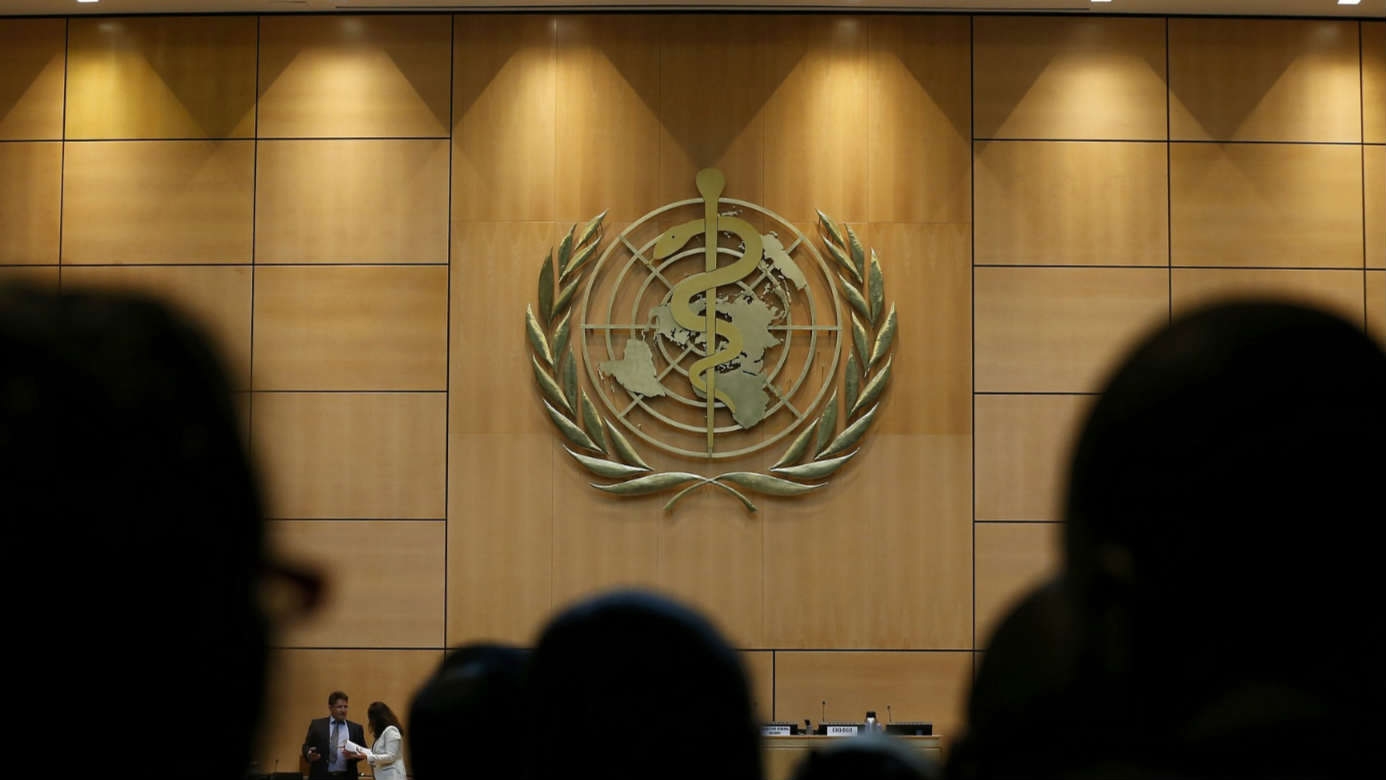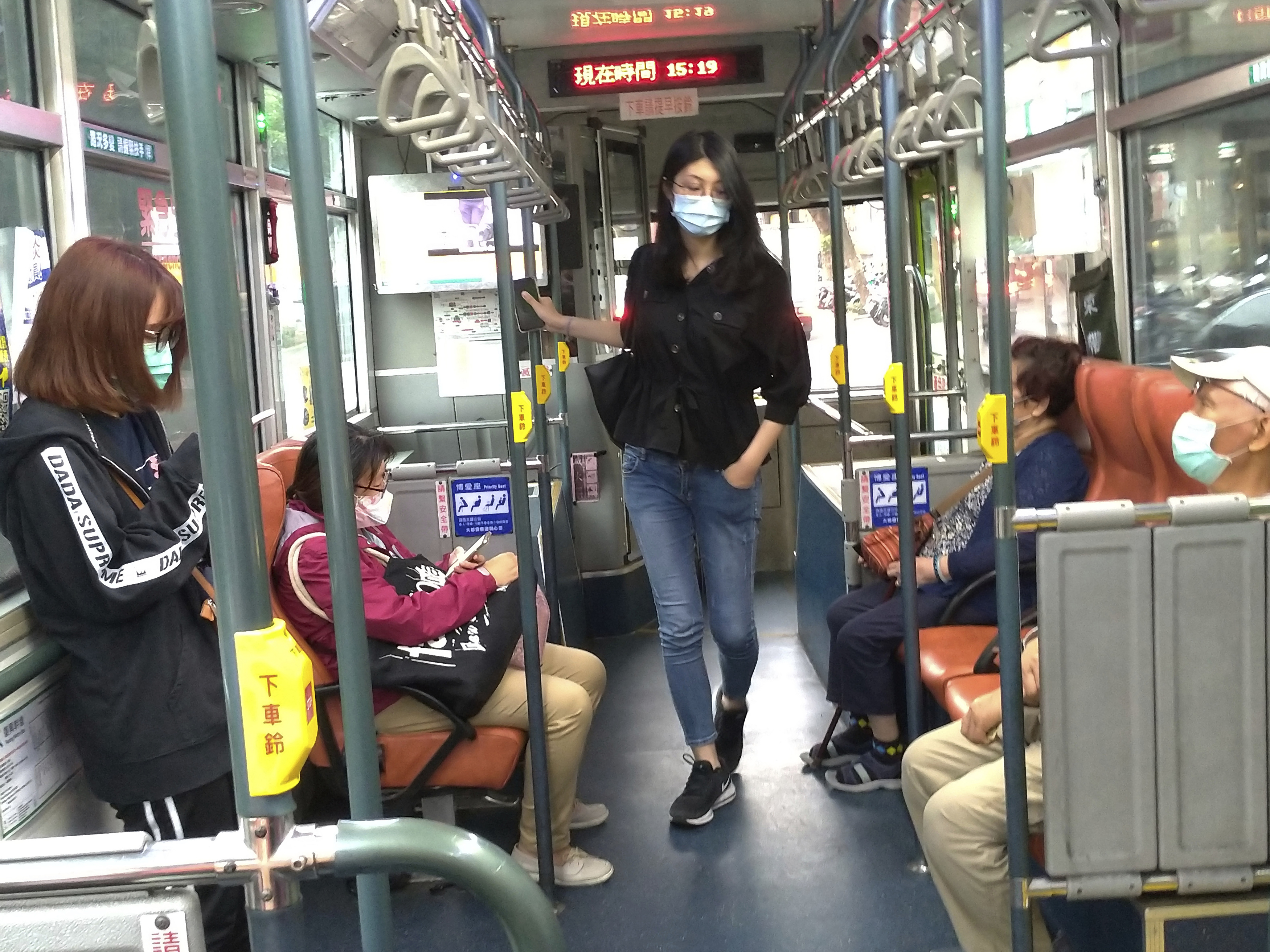
Editor's note: Zhang Hua is an associate research fellow at the Institute of Taiwan Studies of the Chinese Academy of Social Sciences. The article reflects the author's opinions, and not necessarily the views of CGTN.
This year's World Health Assembly (WHA) will be held online on May 18. As in previous years, Taiwan's Democratic Progressive Party (DPP) authorities once again made a scene to attend the event by promoting the so-called "progressive independence" of the island region. This year, the COVID-19 pandemic and the relations between China and the U.S. have given the DPP authorities more excuses.
However, as Taiwan region's current leader Tsai Ing-wen is about to begin her second term amid the solid one-China consensus in the international community, the DPP authorities are unlikely to succeed. As pointed out by many analysts, the only viable key to Taiwan's participation in the WHA lies in the cross-Strait relationship and Taiwan's due recognition of the 1992 Consensus.
The authorities in Taiwan stage a dramatic campaign every year to attend the WHA, but this year they have some new tricks. First, from the perspective of the global environment, the most pressing issue this year is the rapid spread of COVID-19 and its catastrophic impact on global health, the world economy and even the international political landscape. Combating COVID-19 calls for global cooperation and there should be no gaps or loopholes in epidemic prevention.
Mysteriously inspired, the authorities in Taiwan falsely claimed that Taiwan was the "gap" and staged a scene of seeking "independence" amid the pandemic. They falsely charge the Chinese mainland with so-called "suppression" before the international community while poisoning the island with a false "sense of pity" and constantly stirring up some residents' "anti-Beijing" sentiments. In fact, Taiwan, an indispensable part of China, can have full access to global health and epidemic prevention information and guidance through the Chinese government.
In fact, from early 2019 to early May 2020, altogether 16 batches of 24 experts from Taiwan participated in technical events held by the World Health Organization (WHO); from February 5 to March 8, 2020, the Chinese mainland side shared 26 key technical documents with Taiwan; and as of May 15, the Chinese mainland notified epidemic information to Taiwan on 152 different occasions.
In the meantime, Taiwan's performance in coronavirus containment attracted some international "sympathy" and support by providing some countries with epidemic control supplies and experience. While Taiwan strictly prohibited the export of such supplies to the Chinese mainland, it provided tens of millions of face masks and other materials to the U.S., the EU and Southeast Asia, among others. In response, the U.S., the EU, Japan and New Zealand made unprecedented efforts to support Taiwan's campaign to attend the WHA.
To step up its campaign, Taiwan exaggerated the so-called "Taiwan experience" and publicized it frantically to the international audience. Its emphasis on "transparency" and "democracy" in epidemic control was a manipulating trick that aimed at producing ideological rivalry and highlighting the differences between Taiwan and the Chinese mainland. The entire campaign was nothing but sheer advocacy of "Taiwan independence."

People wear face masks to protect against the spread of the new coronavirus as they ride a bus in Taiwan region, southeast China, April 21, 2020. /AP
People wear face masks to protect against the spread of the new coronavirus as they ride a bus in Taiwan region, southeast China, April 21, 2020. /AP
Moreover, in terms of China-U.S. ties, the bilateral relations did not ease up because of their phase one trade deal; on the contrary, tensions seem to be rising due to the serious impact of COVID-19 on the global political and economic order, coupled with the approaching of the U.S. presidential election. In March, the U.S. sought to support Taiwan's participation in the WHA and other international organizations by enacting the so-called TAIPEI Act.
In the face of the staggering COVID-19 outbreak in the U.S., the Trump administration, eager to get the American economy back on track, repeatedly pointed fingers at China. By taking advantage of the U.S. agenda to keep China in check, the DPP authorities have bolstered its relationship with the U.S. by providing the latter with medical supplies and throwing themselves as a pawn to the arms of the latter.
This kind of rivalry mentality of the DPP authorities is the fundamental reason that impedes the improvement of cross-Strait relations and will sooner or later be scorned by the Chinese nation. However, the DPP authorities did get some political gains – verbal expression of interest by the U.S. in supporting Taiwan's participation in the WHA and the popular support by some of the island's residents.
Finally, as can be learned from the island's political agenda, during her first term, Tsai not only lost the so-called "diplomatic" ties with seven countries – which made her a laughing stock for the former island leader Chen Shui-bian – but also its access to the WHA and the International Civil Aviation Conference. During her predecessor Ma Ying-jeou's office, Taiwan attended the WHA for eight consecutive years, for at that time, on the basis of the 1992 Consensus, both sides of the Taiwan Strait made reasonable arrangements through consultations for Taiwan's "international participation."
However, the island's WHA campaign this year was very different. For one thing, the DPP authorities would try all means possible to make their way to the WHA, and any progress made would be seen as a big gift for Tsai Ing-wen's inauguration for her second term. For another, it was impossible for Taiwan to disrupt the solid international one-China consensus; if it had chosen the blunt way, Taiwan itself would be the one to suffer the worst. However, that was not Tsai Ing-wen's "soft" style and approach on "Taiwan independence" and she had some sense of how far she could go with the scene Taiwan was making.
In short, the DPP authorities were clever enough to use COVID-19, China-U.S. relations and the island's political agenda to the advantage of Taiwan's campaign to attend the WHA. However, due to the solid international one-China consensus and the indisputable fact that Taiwan is an indispensable part of China, the campaign was in vain without their due recognition of the 1992 Consensus.
(If you want to contribute and have specific expertise, please contact us at opinions@cgtn.com.)